Oxford residents dubbed 'guinea pigs' over traffic policy
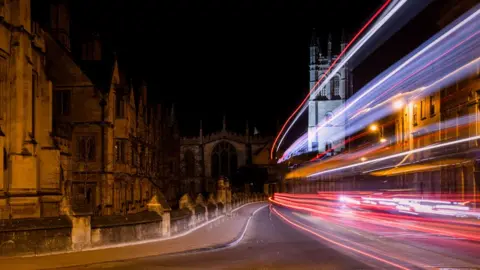 Getty Images
Getty ImagesA trial scheme to reduce car traffic in central Oxford has drawn the ire of activists promoting conspiracy theories online. But why exactly?
Oxford residents may have been surprised when they opened their post boxes in the last week. "Hello Guinea Pig" said a leaflet delivered to many homes across the city.
It appeared to be decorated with the Oxford coat of arms, but instead of depicting an ox crossing a river at the centre, this version showed a guinea pig instead.
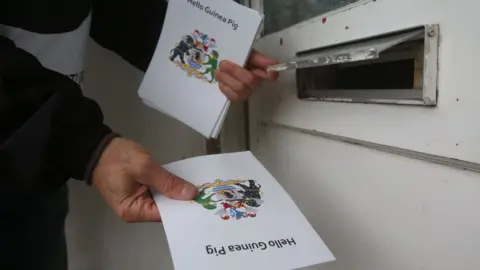 Getty Images
Getty ImagesThe leaflet, produced by activist group Not Our Future, criticises an Oxfordshire County Council scheme aimed at stopping local drivers from using busy city routes at peak times.
It alleges that councillors have been "duped into thinking this is for the good of the people" and told "to make it happen".
Asked about evidence to back those claims, Not Our Future directed the BBC to the group's website. There, a local media article is referenced as a source, despite not including any such allegations.
The group also falsely links the traffic reduction scheme to the United Nations and its policies on tackling climate change - a problem which it sees as non-existent.
"The climate is changing as it always does," it says in its leaflet. "It's a natural cycle. The planet isn't 'on fire'."
In response to the leaflet, Oxfordshire County Council said it respects the right of anyone to voice opposition to its policies. But it also said that "some of the information being circulated by the group is demonstrably false".
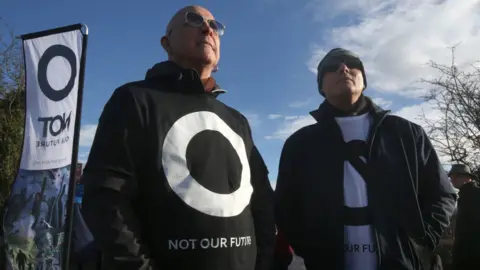 Getty Images
Getty ImagesAt first glance, Not Our Future would appear to be a group of concerned Oxford residents.
The group, founded last year, has the support of a number of media personalities and social media influencers. Many of them are known for spreading conspiracy theories and misinformation about Covid vaccines, climate change or the war in Ukraine.
Its website lists several of these supporters, but only a few appear to have any substantial links to Oxford. Several are based abroad.
"This is a national and international issue, with Oxford being one of the first high-profile examples," Not Our Future said in a statement. "Of course this is of international interest."
But the campaign appears to be meant to resonate with local residents unhappy about the council's policies.
Last November, Oxfordshire County Council approved the creation of traffic filters, enforced through cameras, in six key locations across the city.
Under this trial scheme, private cars will not be allowed through without a permit (which they can use up to 100 days per year), but all other vehicles will be exempt.
While the scheme is not expected to start before 2024, thousands of local residents and businesses have voiced their concerns over the impact the measures might have on them.
Soon after the council's decision was announced, rumours about the scheme began spreading online, aided by other blogs and fringe media outlets known for spreading misinformation.
Among other things, it was falsely claimed that the scheme amounted to a "climate lockdown" and that Oxford residents would soon be forced to stay at home to protect the environment.
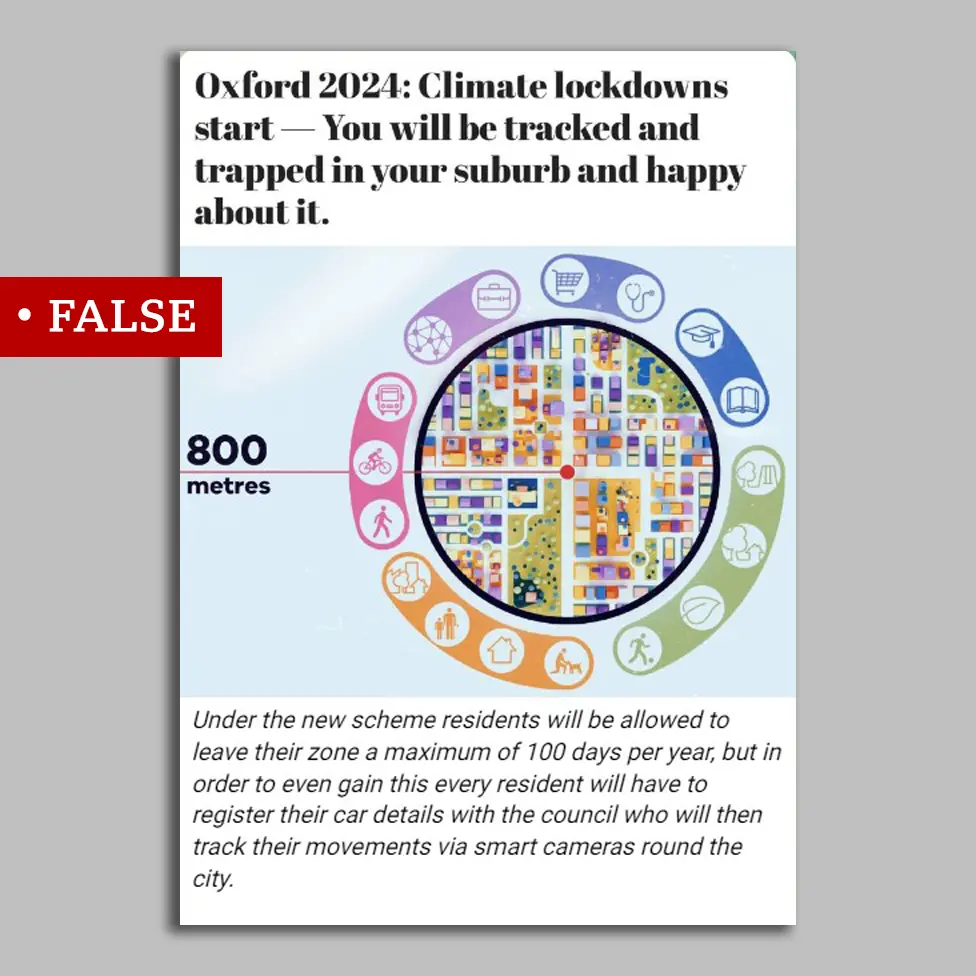
The scheme was also wrongly linked to a separate council proposal to ensure that every Oxford resident has shops, healthcare and parks within a 15-minute walk of their home.
The concept was dubbed "15-minute neighbourhoods" and, for many of the users sharing these distortions online, it was part of a sinister plan to limit people's freedom of movement.
There is no evidence to back any such claims, and Oxfordshire County Council vehemently denies residents will ever be confined to their local area.
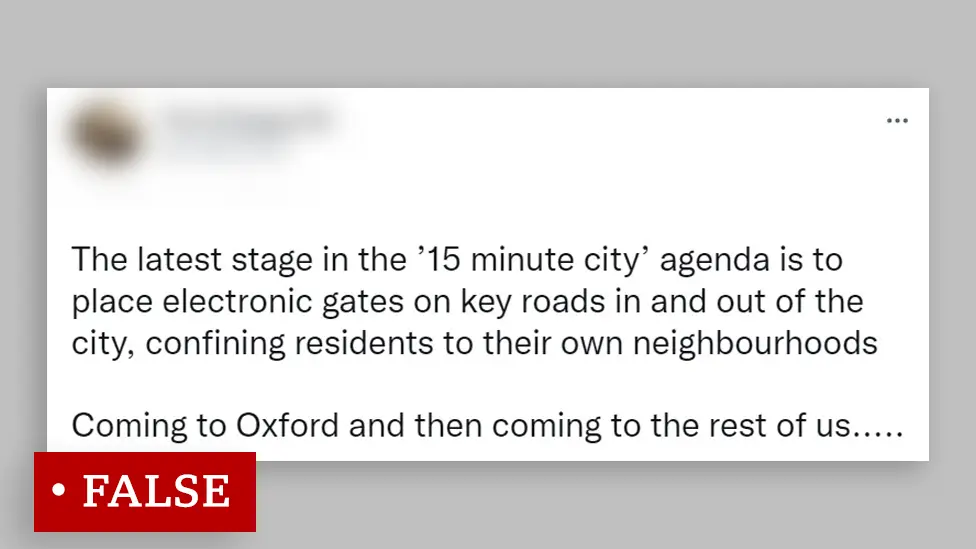 Twitter
TwitterAs these falsehoods spread online, councillors soon began receiving abusive messages and threats, some of which have been reported to Thames Valley Police.
There is no evidence to suggest that Not Our Future or its supporters played a part in any of this.
In a statement released in December, Oxfordshire County Council condemned the abuse, which it said was "due to inaccurate information being circulated online".
Despite the council's repeated attempts to set the record straight, these narratives appear to have found a willing audience in conspiracy-focused pages and channels on social media, both in the UK and abroad. The BBC has seen dozens of posts (some of which were shared thousands of times) describing the measures as "dystopian" and "totalitarian".
For its part, Not Our Future claims its mission is "to fight for the survival of our way of life as we know it".
But references to common conspiratorial tropes can also be found on the group's website and social media accounts, including baseless claims about Covid 19, the World Economic Forum and climate change.
"What do you consider to be a conspiracy theory?" asked the group in response to the BBC's questions.
"All we want to do is inform the public," it said, adding that it won't be leafleting Oxford again in the near future.
